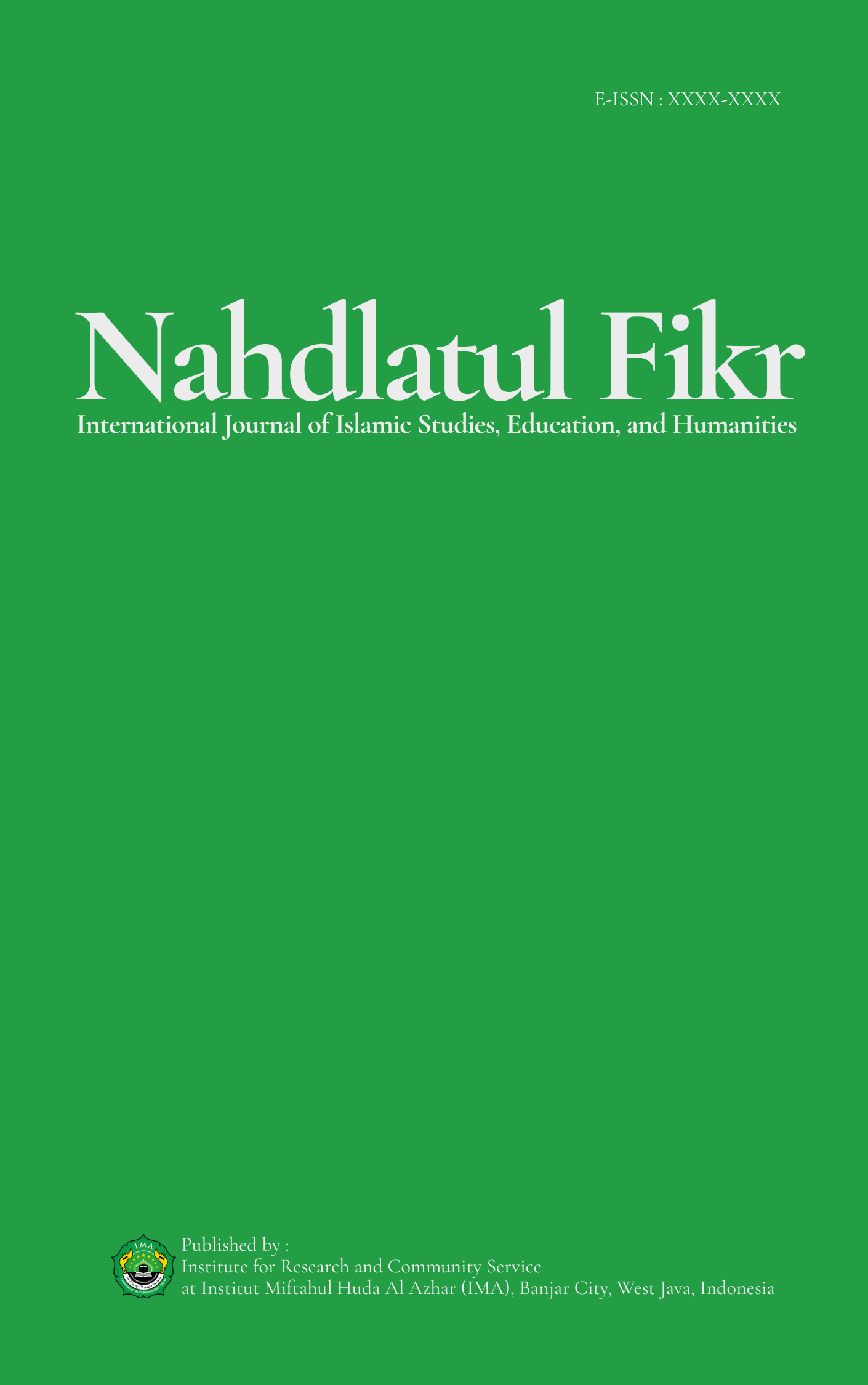Digitalization and Maqāṣid Al-Sharīʿah: Navigating Halal Lifestyle in Indonesia
Main Article Content
Abstract
Background: In the digital era, the relevance of maqāṣid al-sharīʿah (the objectives of Islamic law) within a halal lifestyle has become increasingly significant for Muslims worldwide, especially in Indonesia. This study aims to explore the application of maqāṣid al-sharīʿah principles in the context of digital technology, focusing on how these principles influence the halal lifestyle.
Methods: A qualitative approach was used, including a comprehensive literature review and case studies. The research examines how digital tools, such as halal e-commerce platforms and digital halal certification applications, are integrated into the halal lifestyle and their alignment with maqāṣid al-sharīʿah.
Results: The study found that digital tools, such as halal e-commerce platforms and halal certification apps, significantly improve access to halal products and enhance the transparency of the halal industry. However, several challenges persist, including issues related to unverified information, the need for more stringent regulations, and the potential for deviations from sharia principles in digital platforms.
Discussion: Overcoming these challenges requires effective collaboration among government, industry, and society. Furthermore, educating the public on the principles of maqāṣid al-sharīʿah and the responsible use of technology is crucial to ensuring that halal lifestyles remain aligned with technological advancements in Indonesia.
Conclusion: This study highlights the importance of aligning maqāṣid al-sharīʿah principles with digital tools in promoting a halal lifestyle. To ensure sustainability and authenticity, it is essential to implement stricter regulations and increase public education on both Islamic law principles and the ethical use of technology.
Novelty: This research contributes to the understanding of how digital technology can support the halal lifestyle while adhering to the values of maqāṣid al-sharīʿah. It offers practical insights into the challenges and opportunities for integrating Islamic principles with digital advancements, particularly in Indonesia.
Downloads
Article Details
How to Cite
References
Abd Halim, M. H., et al. (2024). Application of digital technology in offering tourism packages at iron smelting sites, Sungai Batu Archeological Complex (SBAC), Bujang Valley, Kedah, Malaysia. Digital Applications in Archaeology and Cultural Heritage, 32, e00294. https://doi.org/10.1016/j.daach.2023.e00294
Abdul Halim, N. R., et al. (2024). Non-conformance report (NCR) on Malaysia halal certification: A case study among small-medium scale food enterprises (SMEs) in Malaysia. Food Control, 160, 110298. https://doi.org/10.1016/j.foodcont.2024.110298
Ahmad, A. N., et al. (2017). Critical success factors affecting the implementation of halal food management systems: Perspective of halal executives, consultants and auditors. Food Control, 74, 70–78. https://doi.org/10.1016/j.foodcont.2016.11.031
Ali, M. H., et al. (2021). A sustainable Blockchain framework for the halal food supply chain: Lessons from Malaysia. Technological Forecasting and Social Change, 170, 120870. https://doi.org/10.1016/j.techfore.2021.120870
Al-shami, H. A., & Abdullah, S. (2023). Halal food industry certification and operation challenges and manufacturing execution system opportunities. Materials Today: Proceedings, 80, 3607–3614. https://doi.org/10.1016/j.matpr.2021.07.331
Aslan, H. (2023). The influence of halal awareness, halal certificate, subjective norms, perceived behavioral control, attitude and trust on purchase intention of culinary products among Muslim consumers in Turkey. International Journal of Gastronomy and Food Science, 32, 100726. https://doi.org/10.1016/j.ijgfs.2023.100726
Boğan, E., et al. (2023). Exploring halal tourism-related factors that mitigate employees’ job pursuit intention in halal hotels: The moderating roles of age and gender. Journal of Hospitality and Tourism Management, 55, 368–379. https://doi.org/10.1016/j.jhtm.2023.05.012
Ghazali, E. M., et al. (2022). Restaurant choice and religious obligation in the absence of halal logo: A serial mediation model. International Journal of Hospitality Management, 101, 103109. https://doi.org/10.1016/j.ijhm.2021.103109
Kurniawati, D. A., et al. (2024). Toward halal supply chain 4.0: MILP model for halal food distribution. Procedia Computer Science, 232, 1446–1458. https://doi.org/10.1016/j.procs.2024.01.143
Rejeb, A., et al. (2021). Integrating the Internet of Things in the halal food supply chain: A systematic literature review and research agenda. Internet of Things, 13, 100361. https://doi.org/10.1016/j.iot.2021.100361
Salaheldeen, M., et al. (2024). Halal Entrepreneurship: Concepts, Practices, Challenges, and Future Trends. In Reference Module in Social Sciences. Elsevier. https://doi.org/10.1016/B978-0-443-13701-3.00164-X
Slamet, Abdullah, I., & Laila, N. Q. (2022). The contestation of the meaning of halal tourism. Heliyon, 8(3), e09098. https://doi.org/10.1016/j.heliyon.2022.e09098
Suhartanto, D., et al. (2021). Holistic tourist experience in halal tourism evidence from Indonesian domestic tourists. Tourism Management Perspectives, 40, 100884. https://doi.org/10.1016/j.tmp.2021.100884
Uddin, S. M. K., et al. (2021). Halal and Kosher gelatin: Applications as well as detection approaches with challenges and prospects. Food Bioscience, 44, 101422. https://doi.org/10.1016/j.fbio.2021.101422
Jubaedah, D., et al. (2023). Halal Certification in Indonesia: Study of Law Number 6 of 2023 on Job Creation. Jurisdictie: Jurnal Hukum Dan Syariah, 14(1), Article 1. https://doi.org/10.18860/j.v14i1.19948
Herdiana, Y., et al. (2024). Towards halal pharmaceutical: Exploring alternatives to animal-based ingredients. Heliyon, 10(1), e23624. https://doi.org/10.1016/j.heliyon.2023.e23624
Naisabur, N., et al. (2024). Prohibition of Social Commerce Transactions on the TikTok Shop Application from a Fiqh Perspective Based on Sharia Compliance and Economic Justice. Al-Manahij: Jurnal Kajian Hukum Islam, 18(1). https://doi.org/10.24090/mnh.v18i1.9674
Tedjakusuma, A. P., et al. (2023). Intention to purchase halal health supplement online: Lessons learned from the health crisis. Heliyon, 9(9), e19840. https://doi.org/10.1016/j.heliyon.2023.e19840
Novita, D., et al. (2022). Khiyar in Buying and Selling Online Based on the Fiqh Perspective. Al-Istinbath: Jurnal Hukum Islam, 7(2 November), Article 2 November. https://doi.org/10.29240/jhi.v7i2.5232
Längle, A., et al. (2024). Requirements Analysis for Digital Supply Chain Compliance Management Platforms: Case of German Meat Industry. Procedia Computer Science, 232, 2038–2048. https://doi.org/10.1016/j.procs.2024.02.026
